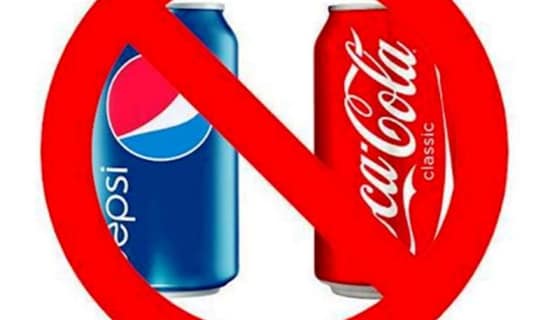On Valentine's Day (February 14, 2010), the Saudi religious police increased its presence around the country, especially in the vicinity of flower shops and gift shops, in order to prevent the public from buying Valentine-related items. This policy, which was also employed in previous years, sparked a debate in the Saudi press. Some condemned and ridiculed the custom of celebrating Valentine's Day, calling it foolish and alien to Saudi culture. Others opposed the ban, calling it wrongheaded and primitive, or presenting it as a violation of individual freedoms. Some of the articles also called to establish an international holiday dedicated to love and friendship, or to establish a Saudi holiday equivalent of Valentine's Day.
Following are excerpts from some of the articles:
The Saudi Religious Police Bans Valentine's Day
A few days before the holiday, the Saudi religious police warned the public against marking it in any way, and announced a ban on selling Valentine-related gifts, holding parties or wearing special garments to mark the day.[1] Religious police spokesman in Riyadh Dr. Turki Al-Shalil said his force would deploy policemen throughout the country on the eve of the holiday, as part of its usual policy on this date. He warned that anyone caught buying, selling or wearing Valentine-related items would be stopped, questioned and told to surrender the item; refusal would result in being taken to the police station. Al-Shalil noted that the Council of Senior Ulema, the country's supreme religious authority, had issued a fatwa banning this Christian holiday and instructing the Muslims to celebrate two holidays only: 'Id Al-Fitr and 'Id Al-Adha.[2]
Saudi Prince: It's a "Holiday of Fools"
In a article in the daily Al-Watan, Saudi Prince Sa'ud bin Mansour bin 'Abd Al-'Aziz ridiculed the holiday and called to fight it through education: "...Until the 1990s, we never [even] heard of Valentine's Day... [but then] a holiday of fools called Valentine's Day suddenly appeared, and young people started racing each other to the flower shops, while the religious police [rushed to] confront them and the shop owners... Why shouldn't all our [personal] relationships and all our days be marked by love, [but only] within the frameworks that Allah permitted? Why do we rush to embrace every import that comes from the West – a West that mocks the behavior of the sons of the Arabian Peninsula?
"I believe that our religious police, our schools, our mothers and our fathers have neglected their [duty] of providing guidance, and are all party to [the crime of] oppressing and neglecting [the youth]... What we need is education that will train their minds to tell right from wrong..."[3]
Manal Al-Sharif, editor of the women's section in the government daily 'Okaz, also wrote against the holiday: "We have loftier matters [to think of] than Valentine's Day, and the media's preoccupation with it and propaganda campaign in its favor... Valentine's Day is alien to us; moreover, it is considered a foolish [holiday]. The Saudis are above [celebrating] Valentine's Day. I wish we could borrow helpful things [from the West], instead of embracing [all sorts of] nonsense."[4]
Criticism in Saudi Media: The Ban – A Violation of Individual Freedoms
This year, numerous press articles condemned the ban on marking the holiday. Daoud Al-Shiryan, Al-Hayat columnist and deputy secretary-general of Al-Arabiya TV, wrote: "In Saudi Arabia love is still [grounds for] an indictment. The amazing thing is that today, the religious police will sign many indictments against citizens on charges of love. Some of these indictments may start with sentences like '[The accused] was arrested wearing a holiday-related item,' or '[The accused] was seen carrying a red rose, God forbid!'...
"How is it possible to justify this annual war on love? And how is it possible [to justify] this interference in the public's affairs – an interference that sets a precedent for [further] attacks on individual freedoms? Does it make sense [to divert] the security apparatuses from [the task of] guarding the public's safety to [the task of] pursuing people who buy red roses and express lovely sentiments?
"This persecution of the public and interference in people's personal affairs is not just the policy of the religious police – it is the policy of the state. [This phenomenon of] blowing the matter out of proportion, presenting it as a threat to Islam and the Muslims, and associating it with [questions of] right and wrong – is a matter that requires reexamination."[5]
Establish a Saudi Equivalent of Valentine's Day
Nahed Andijani, editorial board director of the Saudi edition of the French women's magazine Marie Claire, wrote: "In Saudi Arabia, love is forbidden. Anything to do with love is forbidden... On Valentine's Day, the religious police clashes with young people [trying to] celebrate... The religious police has been preparing for this [holiday] since the beginning of the year – as if this day, monitored in every detail, is the only item on its agenda – and preparing to fight against anything red, as though many young people have not purchased their holiday needs at least a week beforehand, [specifically] in order to avoid confrontations with [the police]...
"It's a pity there is no international holiday dedicated to love... Why don't we Saudis establish such a holiday, divorced from any religious connotations? [Our clerics] say that all our days are marked by love, but that is not true... Why shouldn't we dedicate a day to expressing affection not only towards our lovers, but also towards our friends, fathers, mothers, etc.?..."[6]
Columnist 'Abdallah Al-Jamili wrote in a similar vein in the Saudi daily Al-Madina: "...Regardless of the historicity of [St. Valentine's] story, its religious aspects, and the [problem of] emulating the infidels, and in order to benefit from the noble goals of this day... why don't we choose a different day of the year, and a color [other than red] for the flowers and gifts, and dedicate this day to expressing pure love?..."[7]
We Must Renounce Our Primitive Mentality
In an interview on Al-Arabiya TV, Saudi author Yousef Al-Muhaimed wrote: "We are a society trapped in fear. [We] fear many things: anything that is new or different from the ordinary and routine. [Our fear is so great] that we have begun to fear love itself. We are afraid to utter the word 'love'; we fear it and avoid it as if it has no meaning beyond sex, though in its broad sense it means more than just [affection between] two lovers. It has [many] meanings, such as [affection] between parents and children, between friends and among people in general... as well as love of nature...
"Love is one of the [values] that Islam preaches to, and therefore there is no reason to fear love itself. [Such fear is the hallmark of] primitive or traditional thinking that associates love with sex. The solution is for the religious police and the state's religious institutions to ignore this issue [of Valentine's Day] and regard it as trivial... It is a very simple matter that should be tolerated, in all domains..."[8]
Jordanian Liberal: Valentine's Day is Humanity's Greatest Holiday
Jordanian liberal intellectual Shaker Al-Nabulsi, who writes in the Saudi daily Al-Watan, posted on the liberal website elaph.com a poem in which he crowned Valentine's Day as humanity's greatest holiday. He wrote: "Allah is love... He hates nothing more than those who hate, and loves nothing more than those who love." Much of the piece was devoted to criticism of the clerics who oppose Valentine's Day. Al-Nabulsi wrote: "Some of our fanatical sheikhs oppose Valentine's Day, calling it a custom imported from the West. But what in our lives is not imported?... [It seems that] love [itself], and the red roses, garments and teddy bears, scare [these sheikhs] witless... Our fanatic sheikhs are callous and their hearts are made of stone... They are no good at love because they do not know what it is... They are ignorant about women, so they hate them. They are ignorant about love, so they hate it [too]... Today all of mankind is on the same side, dancing and celebrating [Valentine's Day], while they, a tiny minority, stand on the other side...
"Love is freedom. Those who love are free; those who love create. Love is a force that is soft but immense, it can vanquish giants." Al-Nabulsi ends with the words: "Love [one another] openly and secretly, in the east and in the west, in every place and at any time..."[9][1] Al-Jazirah (Saudi Arabia), February 11, 2010. Warnings against celebrating the holiday were also heard in Qatar. In his February 5, 2010 Friday sermon, Qatari sheikh Muhammad bin Hassan Al-Muraikhi said that this holiday celebrates illicit relations between men and women and encourages licentiousness among the youth. He urged the Muslims to stick to their own holidays and eschew those of the infidels. Valentine's Day celebrations were also banned in Gaza, and a party planned to take place at one of Gaza's hotels was cancelled on orders from the Hamas government. www.alarabiya.net, February 16, 2010.
[2] Al-Riyadh (Saudi Arabia), February 13, 2010. This presumably refers to a fatwa issued several years ago by Saudi mufti Sheikh 'Abd Al-'Aziz Ahl Al-Sheikh, which called Valentine's Day a "pagan holiday" and forbade Muslims to celebrate it. www.islamway.com, February 15, 2005.
[3] Al-Watan (Saudi Arabia), February 15, 2010.
[4] www.alarabiya.net, February 13, 2010.
[5] Al-Hayat (London), February 13, 2010.
[6] www.alarabiya.net, February 13, 2010.
[7] Al-Madina (Saudi Arabia), February 14, 2010.
[8] www.alarabiya.net, February 13, 2010.
[9] www.elaph.com, February 13, 2010.








